One of the core responsibilities of every government is the protection of life and properties both within the state and against external forces. To see to this duty, governments set up different security agencies, one of which is the army. The exception is not the case in Nigeria as we have what is called the Nigerian Army, and over the years, there have been several Chief of Army Staff in Nigeria appointed to head the Nigerian Army.
The armed forces are subdivided into 3, which are: the Nigerian Army, the Nigerian Airforce, and the Nigerian NAVY. Thus, the Nigerian Army, headed by the Chief of Army Staff, is under the Nigerian Armed Forces, which is headed by the Chief of Defence Staff. This is the highest-ranking military officer of the Nigerian Armed forces. It is occupied by the most Senior Commissioned Officer appointed by the president of Nigeria. The position of the Chief of Defense was first established under Nigeria’s 1979 Constitution.
Everything You Need to Know About The Chief of Army Staff
The Chief of Army Staff is the highest-ranking military personnel of the Nigerian Army. This office is always occupied by the most senior commissioned army officer. The Chief of the Army Staff is appointed by the Commander in Chief of Armed Forces in Nigeria, which is the President of Nigeria. The President is responsible for the appointment of The Chief of Army Staff and other Military heads.
Section 8 of the Public Service rules stipulate that the compulsory retirement age for all grades in the service shall be 60 years or 35 years of pensionable service, whichever is earlier. A Chief of Army Staff is expected to retire and quit the position once he attains the age of 60 or after 35 years in service as stipulated by the public service rule.
The Chief of Army Staff is to formulate and execute policies towards attaining the highest National Security and Operational competence of the force. As we have known that the Nigerian Army is a subunit of the Nigerian Armed Forces; equally, the Chief of Army Staff reports to the Chief of Defense Staff.
The Chief of Army Staff Compared to The Chief of Defense Staff
The two offices are related but different. They perform different but complementary roles. The Chief of Defense Staff is the head of the Nigerian Army, Nigerian Navy, and the Nigerian Airforce. While the Chief of Army Staff is the apex position in the Nigerian Army, the Chief of Defense Staff is the office that gives the order to the Chief of Army Staff, and he often reports to the Chief of Defense Staff.
Nigerian Chief of Army Staff from 1960 to Date
1. Major General Kenneth G. Exham
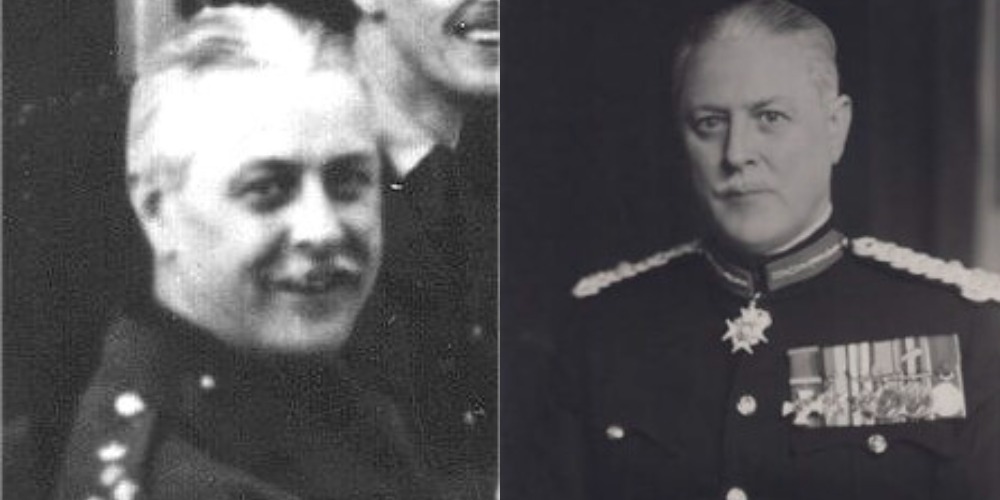
- Took charge: 1956
- Handed over: 1959
- Duration: 3 years
He is the first recorded Chief of Army Staff on Nigerian soil. At the time, it was referred to as General Officer Commanding. Major General Exham was in office from 1959
2. Major General Norman Foster
- Took charge: 1960
- Handed over: 1962
- Duration: 2 years
Major General Norman Foster is a British Military man, and he took over from Major-General Kenneth Exham. He served as the Chief of Army Staff from 1960 to 1962.
3. Major General Christopher Welby Everard
- Took Charge: 1962
- Handed Over: 1965
- Duration: 3 years
Major general Sir Christopher Welby-Everard was a British man born on 9th August 1909 and the first General Officer Commanding or what we know today as Chief of Army Staff in Nigeria. Before becoming GOC, he fought gallantly in the Arab revolt in Palestine (1936-1939) and World War II (1939-1945).
At the end of his service, he was succeeded by Major general Johnson Aguiyi-Ironsi, the first Nigerian General Officer Commanding, who seized power after Nigeria’s 15 January 1966 military coup.
4. Major General Aguyi Ironsi
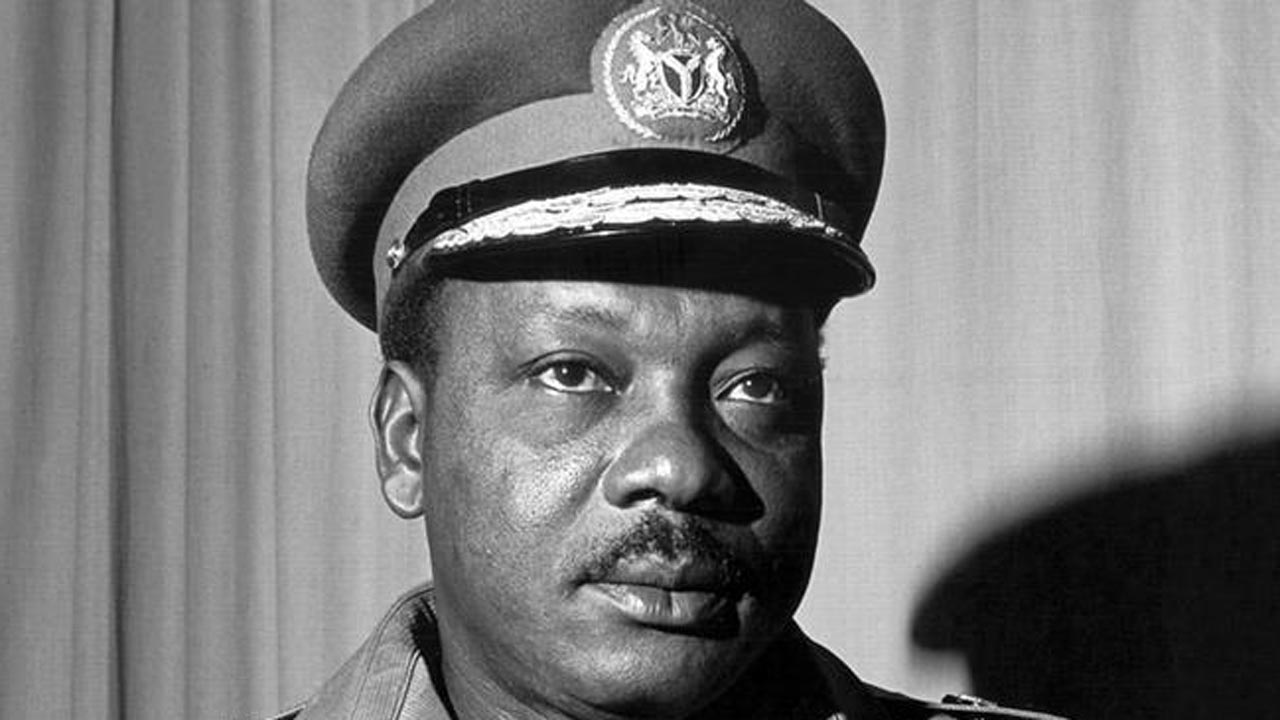
- Took charge: February 1965
- Handed Over: January 1966
- Duration: 1 year
He was from the southeastern part of the former eastern region of Nigeria. He became the first military head of state in Nigeria after the first military coup of January 15, 1966. Major General Aguyi Ironsi was killed during the second coup, which was tagged a counter-coup.
5. Lt. Colonel Yakubu Gowon
- Took Over: January 1966
- Handed Over: July 1966
- Duration: 6 months
He came from the middle belt side of the country and was a Muslim Northerner from Kanke Local Government Area of Plateau State. He was made the Military Sead of State after the second military coup, which took place on July 29th, 1966.
During his reign as the head of state, he created 12 States out of the then 4 regions, and in 1967, Nigeria went into a civil war, which has been the first and the last till this publication. The Civil war lasted for 3 years, 1967-1970. After the Civil war, he came up with 3Rs, which means Reconstruction, Reconciliation, and Rehabilitation.
6. Lt. Colonel Joseph Akaahan
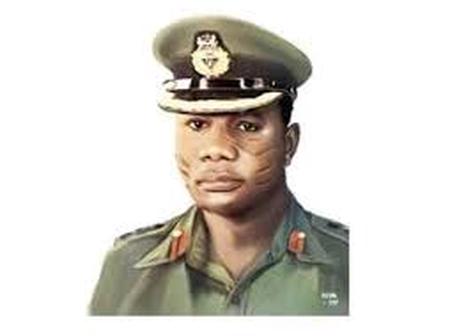
- Took Charge: August 1966
- Handed Over: July 1967
- Duration: 6 months
Like Yakubu Gowon, he was also from the middle belt side of the country. He was a Tiv man, a Christian faithful from Benue State. He had his training in Sandhurst. He was involved in a helicopter crash, where he lost his life. Gowon was later succeeded by Lt. Colonel Iliyasu Bissala on an interim basis. Iliyasu Bissala was also Christian faithful from Plateau. Lt. Colonel Iliyasu Bissala was executed according to the military way for the part he took in the coup of February 13, 1976.
7. Major Gen. Hassan Usman Katsina
- Took Charge: January 1968
- Handed Over: July 1971
- Duration: 3 years
He was a Northern Muslim of Hausa-Fulani descent from Katsina. He was made the governor of the Northern Region of Nigeria from 1966-1967.
8. Maj. General David Ejoor
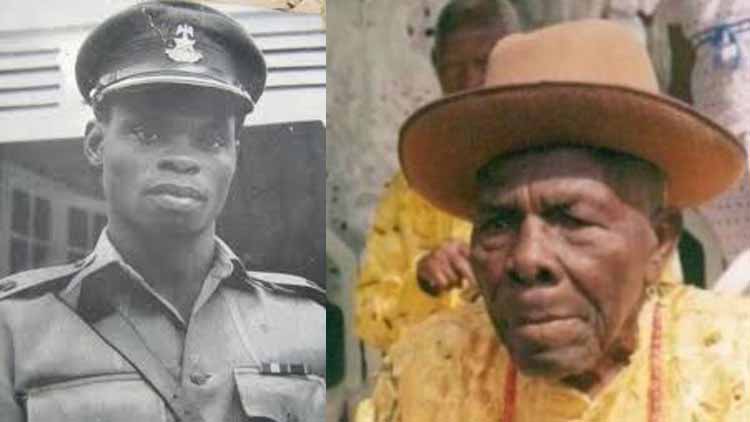
- Took Charge: January 1971
- Handed over: July 1975
- Duration: 4 – 5 years
David Ejoor was made the governor of the Mid-Western State of Nigeria during the Biafra War.
9. Lt. General Theophilus Danjuma
- Took Charge: July 1975
- Handed Over: September 1979
- Duration: 4 years
He was a Christian from the Jukun tribe of Benue State. He served under the military administration of President Olusegun Obasanjo. He was a notable opposition to then-President Olusegun Obasanjo‘s quest for a third term in office in 2007.
10. Lt. Gen. Alani Akinrinade
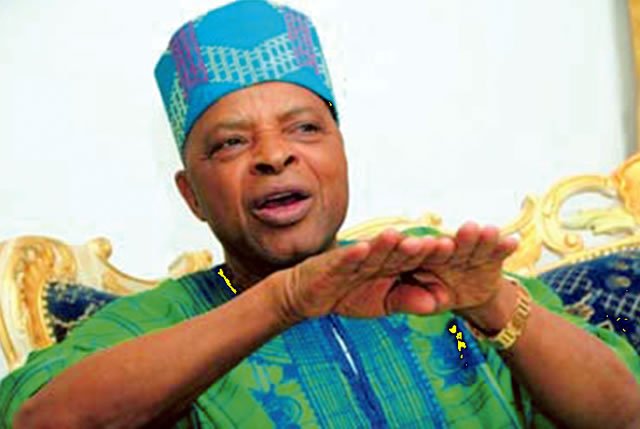
- Took charge: Oct. 1979
- Handed Over: April 1980
- Duration: 6 months
He was a Yoruba man born in Osun State of the South-Western region of Nigeria. Alani Akinrinade was a Christian faithful. He played a vital role in fighting the Biafran in January 1970. He was later appointed as the Minister of Agriculture from 1985–1986, and also of Industries in (1988) and was also in General Ibrahim Babangida’s government as the minister of transportation.
11. Lt. Gen. Gibson Jalo
- Took Charge: April 1980
- Handed Over: October 1981
- Duration: 18 months
Lt. General Gibson Jalo was a Muslim Northerner from Bachama, Adamawa State.
12. Lt. Gen. Mohammed Inuwa Wushishi
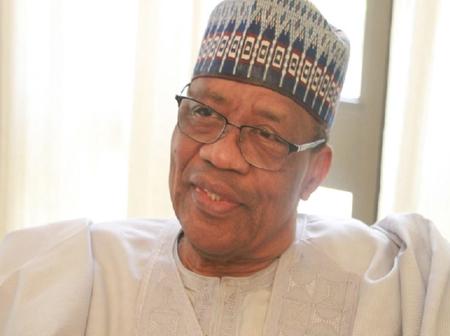
- Took Charge: October 1981
- Handed Over: December 1983
- Duration: 2 years
A Nupe man from Niger State, a Northern Muslim faithful. He was able to chair several boards of directors of big companies after his retirement.
13. Maj. General Ibrahim Babangida
- Took Charge: January 1984
- Handed Over: August 1985
- Duration: 19 months
General Ibrahim Babangida was born in Minna, Niger State. He succeeded General Muhammadu Buhari as the Military Head of State. He reigned as the head of state from August 1985 to August 1993. During his tenure, he introduced Structural Adjustment Program (SAP).
14. Lt. Gen. Sani Abacha
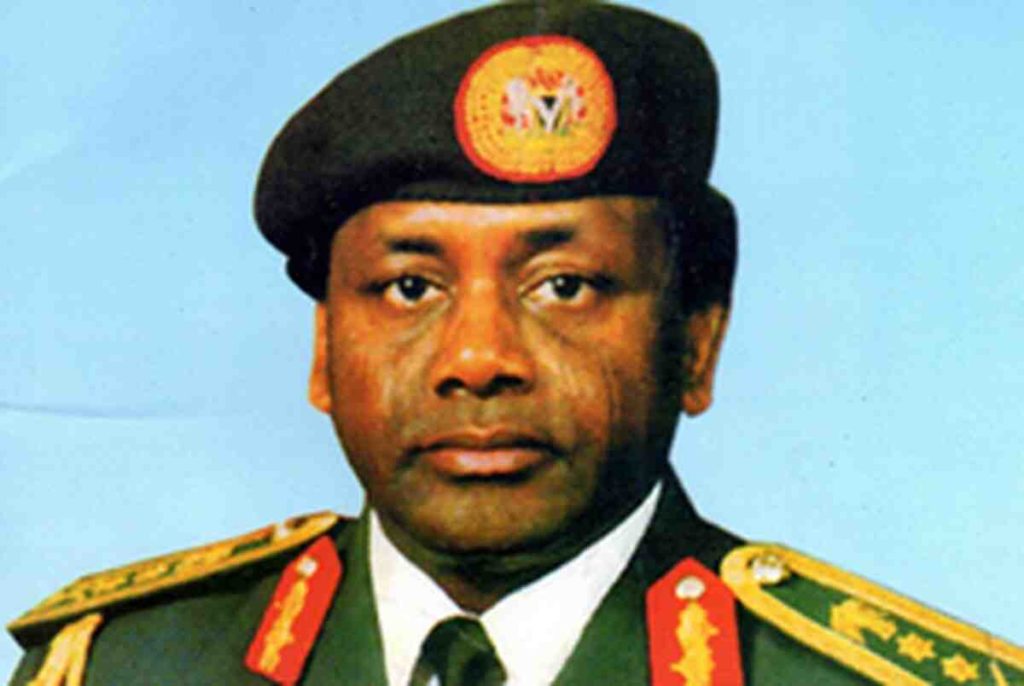
- Took Over: August 1985
- Handed Over: September 1990
- Duration: 5 years
He was a Northern Muslim of the Kanuri tribe from Borno, who settled in Kano. He became the military head of state in November 1993 and ruled until his death in June 1998.
15. Lt. Gen. Salihu Ibrahim
- Took Charge: Sept. 1990
- Handed Over: August 1993
- Duration: 3 years
Gen. Salihu Ibrahim, a Muslim Yoruba man from Kwara State. After he retired from the military, he was made the chairman board of directors of several companies.
16. Lt. Gen. Aliyu Mohammed Gusau
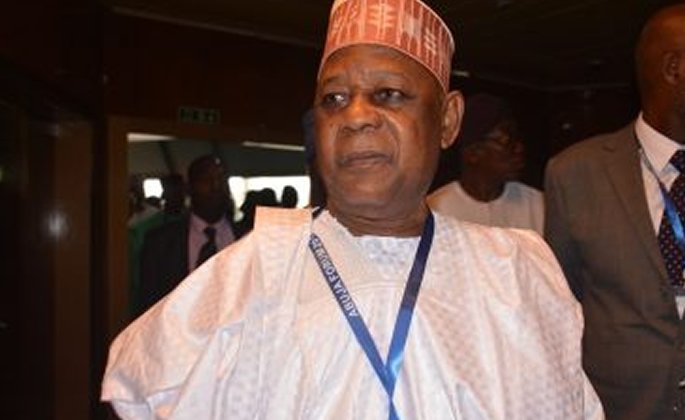
- Took Charge: September 1993
- Handed Over: November 1993
- Duration: 2 Months
He is a Northern Muslim of the Fulani tribe from Gusau in Zamfara State. He was made Director of Military Intelligence from November 1979 to December 1983, and also made the Director of the Defence Intelligence Agency (DIA) from August 1985, Acting Director-General of the NSO (National Security Organization) from September 1985 to August 1986, Coordinator on National Security. He contested in the PDP (People’s Democratic Party) presidential primary election in 2011.
17. Maj. Gen. Chris Alli
- Took Charge: November 1993
- Handed Over: August 1994
- Duration: 9 months
He is Christian faithful from the north, Ebira tribe from Kogi State. Alli was in office for 9 months, starting from November 1993 to August 1994.
18. Maj. Gen. Alwali Kazir
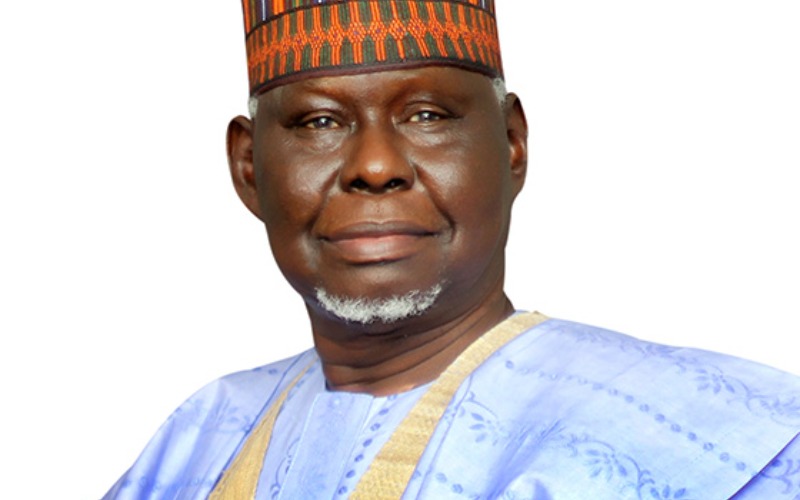
- Took Charge: August 1994
- Handed Over: March 1996
- Duration: 2 years
A Muslim northerner, Fulani tribe from Kwara State.
19. Lt. Gen. Ishaya Rizi Bamaiyi
- Took charge: March 1996
- Handed Over: May 1999
- Duration: 3 years
A Christian faithful of Fulani descent from Kebbi State. His older brother, Maj. Gen. Musa Bamaiyi, was the former Head of the National Drug Law Enforcement Agency (NDLEA).
20. Lt. Gen. Samuel Victor Leo Malu
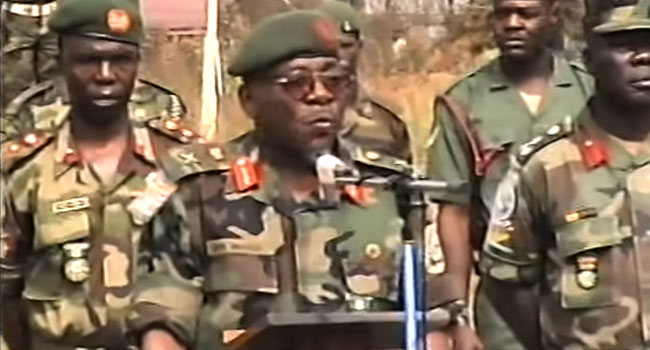
- Took Charge: May 1999
- Handed Over: April 2001
- Duration: 2 years
He was from the Tiv tribe in Benue State. He was the ECOMOG (Economic Community of West African States Peace Monitoring Group) field commander in Liberia at the beginning of the 1990s.
21. Lt. Gen. Alexander Oderuduo Ogomudia
- Took Charge: April 2001
- Handed Over: June 2003
- Duration: 2 years
Lt. Gen. Alexander is from Isoko, Edo State. He served as the Chief of Army Staff from April 2001 to June 2003. Afterward, he was made the Chief of the Defence Staff (CODS).
22. Lt. Gen. Martin Luther Agwai
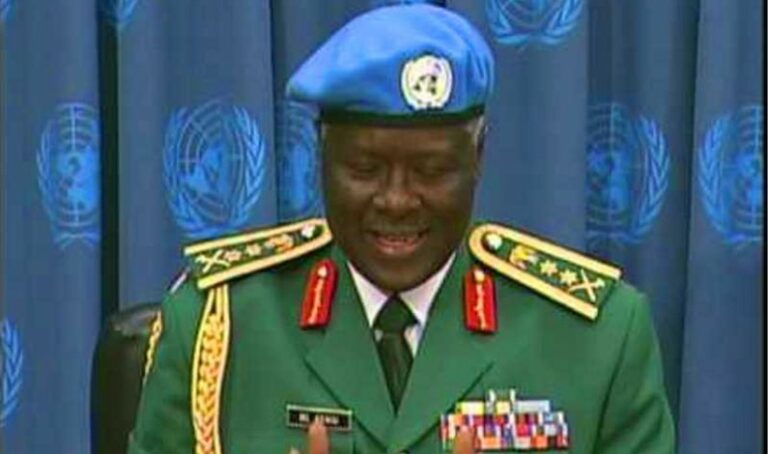
- Took Charge: June 2003
- Handed Over: May 2007
- Duration: 4 years
Martin Luther Agwai is a Christian, Yoruba from Kaduna. He was later made the Commander of the United Nations African Union Mission in Darfur between May 2007 to September 2009. In 2000, he became the Deputy Force Commander of the United Nations Mission in Sierra Leone (UNAMSIL) until November 2002.
In 2009, Ruth Agwai, the wife of Martin Luther Agwai, was accused of mismanagement of UN funds, which were transferred to the Nigerian Army Officers’ Wives Association (NAOWA).
23. Lt. Gen. Owoye Andrew Azazi
- Took Charge: June 2006
- Handed Over: May 2007
- Duration: 1 year
Lt. Gen. Owoye Andrew Azazi is a Christian, Ijaw from Bayelsa. In recognition of his diligence in service, he was later made the Chief of the Defence Staff (CODS).
24. Lt. Gen. Luka Nyeh Yusuf
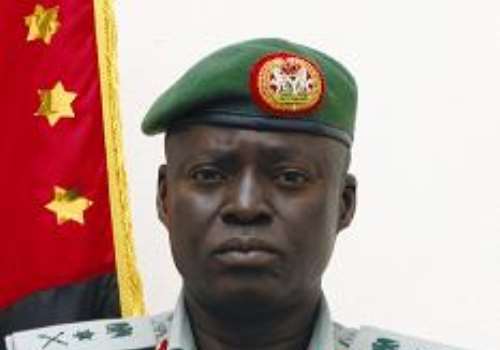
- Took Charge: June 2007
- Handed Over: August 2008
- Duration: 1 year
He was born in Jama’a local government area from Kaduna State and was made the Chief of Army staff in Liberia in the Mid 1990s. Lt. Gen. Luka Nyeh Yusuf was involved in a scandal that involved the sales of arms from the central command depot, Kaduna armory. This case led to his retirement. Sadly, Nyeh Yusuff suffered a long illness that later took his life in 2009 in London.
25. Lt. Gen. Abdulrahman Bello Dambazau
- Took charge: April 2008
- Handed Over: September 2010
- Duration: 2 years
He was born in Kano State. Dambazau is from the Fulani tribe and was in office for two years, from April 2008 to September 2010.
26. Lt. Gen. Onyeabor Azubuike Ihejirika
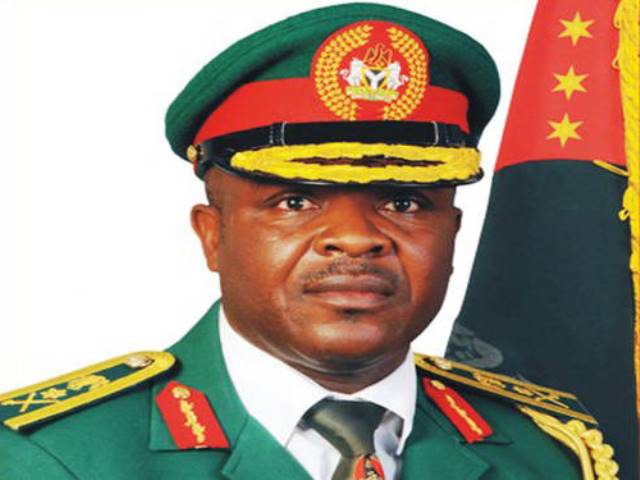
- Took Charge: September 2010
- Handed Over: 2014
- Duration: 4 years
Ihejirika is from Ovim, Isuikwato Local Government, Abia State. He is the first Igbo descent to attain the Position since the Biafran war.
27. Lt. Gen. Kenneth Minimah
- Took Charge: 2014
- Handed Over: 2015
- Duration: 1 year
Kenneth Minimah is from Opobo Kingdom, Rivers State, Nigeria. He served in various capacities in the Nigerian Army before being appointed the Chief of Army Staff. His reign lasted for a year, from 2014 to 2015.
28. Lt. Gen. Tukur Yusuf Buratai
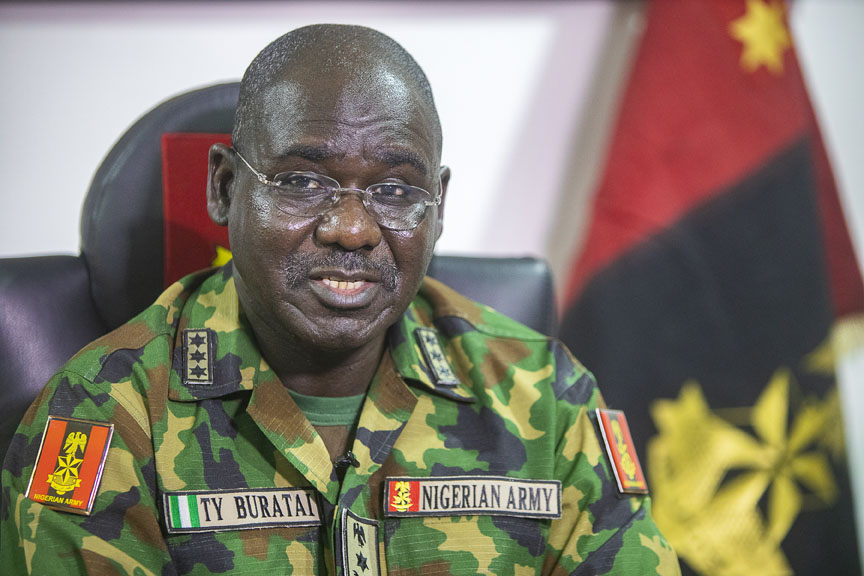
- Took Charge: 2015
- Handed Over: 2021
- Duration: 6 years
Tukur Buratai succeeded Lt. Gen. Kenneth Minimah as he was appointed by President Muhammadu Buhari in July 2015. He is the current serving ambassador of Nigeria to the Benin Republic. This appointment came shortly after he retired from the Military service.
29. Lt. Gen. Attahiru Ibrahim
- Took Charge: Jan. 26, 2021
- Handed Over: May 21, 2021
- Duration: 4 months
Attahiru Ibrahim succeeded Lt. Gen. Tukur Buratai and reigned for almost five months in the office before he lost his life in a military jet that crashed close to Kaduna international airport on May 21st, 2021.
30. Lt. Gen. Farouk Yahaya
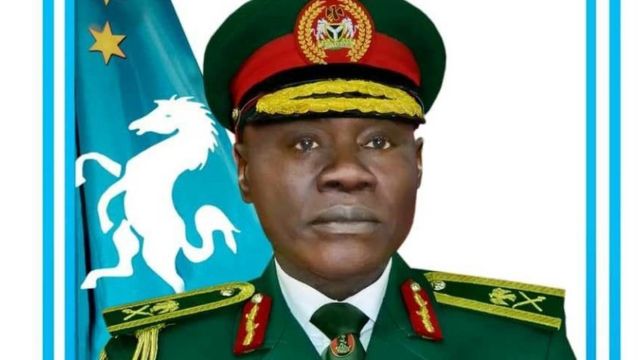
- Took Charge: 27th May 2021
- Duration: To Date
Farouk is the current serving Chief of Army Staff. He was appointed by President Muhammadu Buhari on 27th May 2021 after Major General Ibrahim Attahiru’s death. Before his appointment, Farouk served as the Division One General Commanding Officer. He is married and has four children.
- Maj. Gen. Kenneth G. Exham (1956-1959)
- Maj. Gen. Norman Foster (1960-1962)
- Maj. Gen. Sir Christopher Welby Everard (1963-1965)
- Maj. Gen. Aguyi Ironsi (1965- 1966)
- Lt. Col. Yakubu Gowon(Jan 1966- July 1966)
- Lt. Col. Joseph Akaahan (1966 -1967)
- Maj. Gen. Hassan Usman Katsina (1968- 1971)
- Maj. Gen. David Ejoor (1971-1975)
- Lt. Gen. Theophilus Danjuma (1975-1979)
- Lt. Gen. Alani Akinrinade (1979 – 1980)
- Lt. Gen. Gibson Jalo (1980-1981)
- Lt. Mohammed Inuwa Wushishi (1981-1983)
- Maj. Gen. Ibrahim Babangida (1984-1985)
- Lt. Gen.Sani Abacha (1985-1990)
- Lt. Gen. Salihu Ibrahim (1990-1993)
- Lt. Gen. Aliyu Mohammed Gusau (Sept. 1993-Nov. 1993)
- Maj. Gen. Chris Alli (1993- 1993)
- Maj. Gen. Alwali (1994- 1996)
- Lt. Gen. Ishaya Rizi Bamaiyi (1996-1999)
- Lt. Gen. Samuel Victor Leo Malu (1999-2001)
- Lt. Gen. Alexandre Oderuduo Ogomudia (2001-2003)
- Lt. Gen. Martin Luther Agwai (2003-2006)
- Lt. Gen. Owoye Andrew Azazi (2006-2007)
- Lt. Gen. Luka Nyeh Yusuf (2007-2008)
- Lt. Gen. Abdulrahman Bello Dambazau (2008- 2010)
- Lt. Gen. Onyeabor Azubuike Ihejirika (2010-2014)
- Lt. Gen. Kenneth Minimah (2014- 2015)
- Lt. Gen. Tukur Yusuf Buratai(2015-2021)
- Lt. Gen. Attahiru Ibrahim (Jan. 26th 2021 – May 21st 2021)
- Lt. Gen. Farouk Yahaya (May 27th, 2021 till date)
